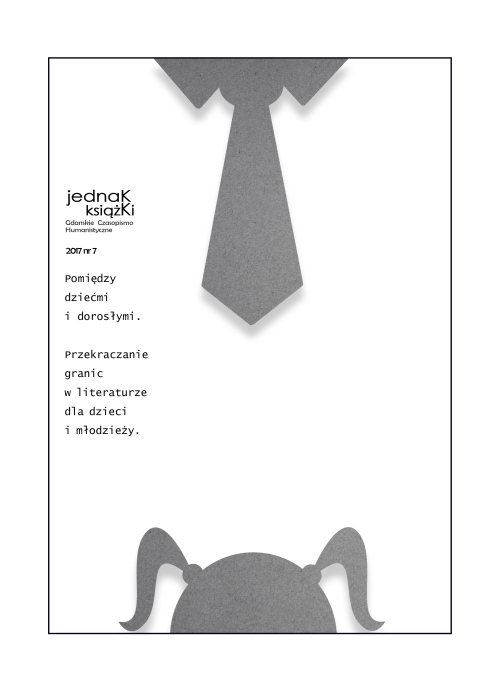Saga "Dragonlance" jako "fantasy przejściowe" (graniczne)
Słowa kluczowe:
fantasy, Dragonlance, Tolkien, RPG, Dungeons & Dragons, growing up, acceptance, axiologyAbstrakt
Author of this article describes characters and themes of Dragonlance saga, one of Dungeons & Dragons worlds, written by Tracy Hickman and Margaret Weis. He notes that Heroes of the Lance are „transistional” - although they are adult in physical sense, they also have problems of teenagers and are close to young readers in regard that they must grow up, too. He also notes that the whole Dragonlance saga is transitional – placed between heroic fantasy of Tolkien and dark fantasy of Sapkowski, between fairytale-like world of Lewis and „realistic” world of Martin. He concludes that although Dragonlance main function is to entertain the reader, it can show some ethical behaviour, too.
Downloads
Bibliografia
Czechowski Jan. 2007. „Funkcje edukacyjne literatury dla dzieci i młodzieży”. Kultura i Edukacja (2): 7-21.
Le Guin Ursula K. 2013. „Ursula K. Le Guin, The Art of Fiction No. 221. Interviewed by John Wray”. The Paris Review (206). Online: http://www.theparisreview.org/interviews/6253/the-art-of-fiction-no-221-ursula-k-leguin. Data dostępu 20.04.2016.
Maas John-Michael. 2004. „Rival Fantasy Publishers Rally Around Star Author”. Publisher Weekly 251 (16). Online: http://www.publishersweekly.com/pw/print/20040419/17825-rival-fantasy-publishersrally-around-star-author.html. Data dostępu 9.08.2016.
Mackay Daniel. 2001. The Fantasy Role-Playing Game: A New Performing Art. Jefferson, North California, London: McFarland & Company.
Majkowski Tomasz Z. 2013. W cieniu białego drzewa: powieść fantasy w XX wieku. Kraków: Wydawnictwo Uniwersytetu Jagiellońskiego.
Pringle David, red. 2003. Fantasy. Ilustrowany przewodnik. Drewnowski Jacek, tłum. Warszawa: Wydawnictwo Arkady.
Sapkowski Andrzej. 2011. Rękopis znaleziony w smoczej jaskini: kompendium wiedzy o literaturze fantasy. Warszawa: superNOWA.
Strickland Ashley. 2013. „A brief history of young adult literature”. Online: http://edition.cnn.com/2013/10/15/living/young-adult-fiction-evolution/. Data dostępu 9.08.2016.
Szeja Jerzy Zygmunt. 2004. Gry fabularne – nowe zjawisko kultury współczesnej. Kraków: Rabid.
Trębicki Grzegorz. 2009. Fantasy. Ewolucja gatunku. Kraków: Universitas.
Weis Margaret, Hickman Tracy. 1994. Smoki wiosennego świtu. Żywno Dorota, tłum. Poznań: Rebis.
Weis Margaret, Hickman Tracy. 1996a. Smoki jesiennego zmierzchu. Żywno Dorota, tłum. Poznań: Rebis.
Weis Margaret, Hickman Tracy. 1996b. Czas bliźniaków. Żywno Dorota, tłum. Poznań: Rebis.
Weis Margaret, Hickman Tracy. 1996c. Wojna bliźniaków. Żywno Dorota, tłum. Poznań: Rebis.
Weis Margaret, Hickman Tracy. 1996d. Próba bliźniaków. Żywno Dorota, tłum. Poznań: Rebis.
Weis Margaret, Hickman Tracy. 1997. Smoki zimowej nocy. Żywno Dorota, tłum. Poznań: Rebis.
Wikipedia. Online: https://en.wikipedia.org/wiki/Dragons_of_Spring_Dawning. Data dostępu 9.08.2016.

 Uniwersyteckie Czasopisma Naukowe
Uniwersyteckie Czasopisma Naukowe




